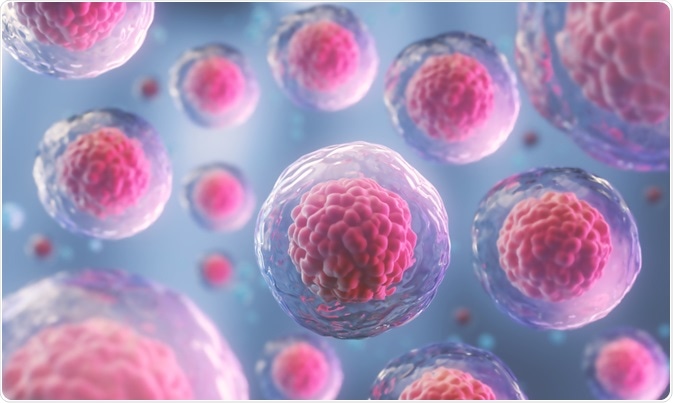Aging is caused by the deterioration of various cellular organelles and physiological processes. The pathways elements that are affected during ageing include insulin resistance, changes in body composition, decline in growth hormone, insulin-like growth factor, and sex steroids.
 Anusorn Nakdee | Shutterstock
Anusorn Nakdee | Shutterstock
Metabolic decline
Metabolic changes are the most common sign of aging within cells. This increases the risk of diseases such as type 2 diabetes, stroke, and hypertension. Insulin resistance is a major metabolic syndrome observed in older adults. This can lead to hepatic gluconeogenesis, adipose lipogenesis, defective glycogen synthesis, and glucose uptake.
Another problem associated with aging cells is abdominal obesity. Although many individuals have normal BMI, being abdominally obese can predispose them to a plethora of diseases.
Proinflammatory cytokines released by aging cells or immune cells can also interfere with insulin production and increase the number of senescent cells. Adiponectin is another metabolic regulator that is derived from adipose tissue and is associated with aging. This hormone is increased in lean individuals or those following calorie restricted diets. An increase in adiponectin has also been observed in centenarians and long-lived mouse mutants.
Mitochondrial decline
One of the major theories in the field of aging suggests that mitochondrial dysfunction is one of the primary causes of cellular senescence. Mitochondrial dysfunction releases reactive oxygen species (ROS) which can cause oxidative damage to macromolecules.
Studies have shown that mutant mice with impaired mitochondrial DNA repair processes undergo accelerated ageing, impaired mitochondrial function, and sarcopenia. There is also evidence to show that there is association between insulin resistance, glucose tolerance and mitochondrial activity.
Researchers are continuing to research the role of mitochondria in aging, and further studies are still required to prove that mitochondrial biogenesis causes metabolic decline in ageing.
Reduction in endocrine function
Various hormones have been implicated in the ageing process. One of the studies hypothesized that replacing estrogen and progesterone could reverse age-related issues in older women. However, rise in these hormones could increase the risk of cognitive decline, breast cancer, and cardiovascular diseases.
This raised the possibility that different hormones may be responsible for various conditions in pre- and post-menopausal women. Growth hormone and Insulin-like growth factor (IGF-1) decrease with age.
Low levels of IGF-1 have been linked to type-2 diabetes, cardiovascular diseases, sarcopenia, osteoporosis etc. However, artificially increasing the levels of growth hormone comes with serious side-effects, including increasing the risk for several cancers.
Thyroid hormones regulate energy expenditure; reducing thyroid hormone levels in rats extended their life, while increasing their levels led to reduced lifespan. Thyroid hormone may regulate ageing by regulating metabolic rate, body temperature, oxygen consumption, reactive oxygen species generation and oxidative damage.
Are there any strategies that can delay celular aging?
Animals on a calorie restricted diet show changes in their stress hormone levels, transciptome, metabolome, proteome. Therefore, it is thought that eating healthily, rather than undereating, is the best way to prevent premature aging.
Finally, other potential ways to delay ageing include modulating the levels of AMPK activators, mTOR signaling, and growth hormone levels. These factors are currently under investigation.
Further Reading